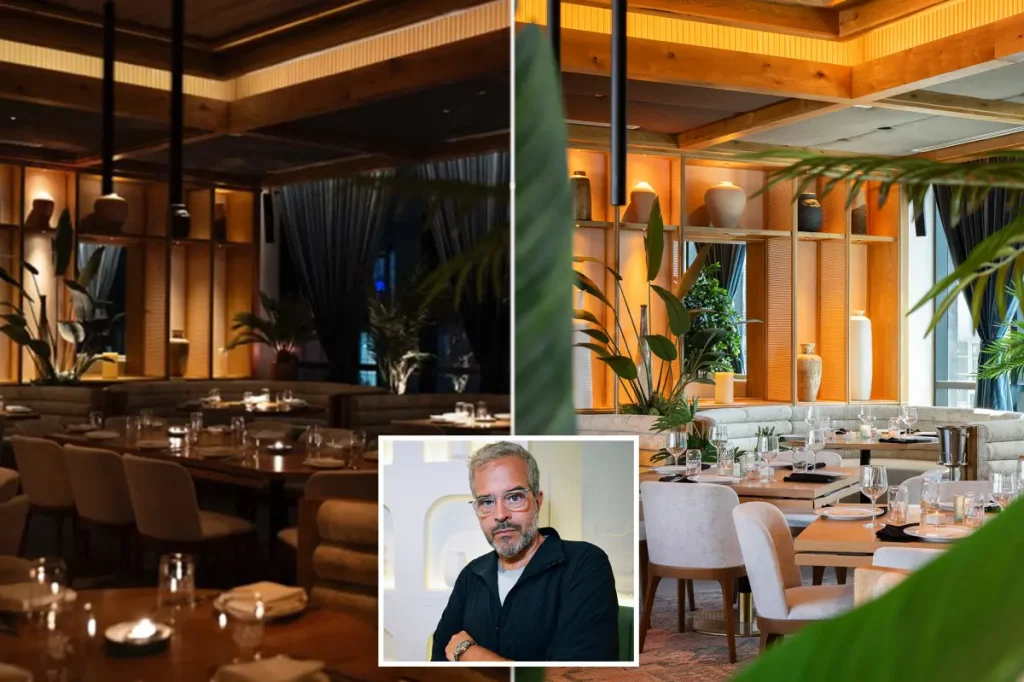Restaurant Owners Reconsider New York City Investments Following Mamdani’s Election
In the wake of Zohran Mamdani’s election as New York City’s mayor, the restaurant industry is experiencing a notable shift in investment plans. Prominent restaurateur Stratis Morfogen has announced the cancellation of three planned establishments in the city, including a significant project in Midtown West. This decision came after Morfogen deliberately waited for the election results before finalizing any lease agreements. His reluctance to expand in New York stands in stark contrast to his recent opening of Brooklyn Chop House Miami, a 400-seat restaurant with rooftop views in the Moxy Hotel. “I’m not signing any more leases in New York,” Morfogen stated firmly, while emphasizing his continued pursuit of opportunities in Miami and other cities. His existing New York businesses will continue operating, but his expansion vision now looks beyond the five boroughs, driven by his belief that the incoming administration will not adequately support small businesses.
Morfogen is not alone in this sentiment. Veteran restaurateur and nightlife entrepreneur Richie Romero has similarly halted new openings in New York City, with the exception of a Sushi By Bou location in the East Village where construction had already commenced before the election. Romero, who hosted fundraising events for former Governor Andrew Cuomo during the campaign, has expressed strong concerns about what he perceives as Mamdani’s socialist policies and economic approach. Instead of investing in New York, Romero is redirecting his focus toward secondary markets, planning to open between 12 and 15 new concepts in cities like Atlanta, Dallas, and West Palm Beach. He’s even launching a coalition “to fight socialism,” although details of this initiative remain in development. For Romero, who has been vocal about his opposition to Mamdani despite facing criticism, New York has become more of a “showcase” market rather than a profit center.
The specific projects Morfogen has shelved reveal the concrete impact of these concerns. A nearly finalized restaurant deal at West 32nd Street and 10th Avenue has been abandoned, along with plans for new diners on the Upper East Side at East 62nd Street and First Avenue, and near the Upper West Side. “We want to wait and see what [Mamdani] does. His radical changes scare the s–t out of small business owners,” Morfogen explained candidly. Among his chief concerns is Mamdani’s proposal to raise the city’s minimum wage to $30 by 2030, which Morfogen believes would devastate fast-casual dining establishments. He predicts that affordable dining options would disappear as menu prices would need to increase dramatically to cover higher labor costs while maintaining profitability. With restaurant profit margins typically around 10%, Morfogen argues there simply isn’t enough cushion to absorb such significant wage increases without substantial price hikes that would drive customers away.
Beyond economic policy concerns, public safety issues under Mamdani’s leadership worry Morfogen deeply. He cites personal experiences, claiming that family members have been assaulted by illegal immigrants in recent years, with one incident resulting in hospitalization. His frustration has reached a boiling point: “I love New York City and even after all the destruction with Cuomo during COVID, I was forced to vote for him because anything is better than a socialist communist with insane, anti-small business policies.” Morfogen, whose father was a Democrat, laments what he sees as a dramatic shift in the city’s political landscape. “This is not the Democratic city that my father loved. [Former Gov.] Mario Cuomo is turning in his grave seeing what the Democratic Party has become.” He specifically mentions concerns about the area around his 24-hour Gramercy Park establishment, Diner24, expressing gratitude for the nearby police station while fearing potential changes to law enforcement funding.
Mamdani’s broader economic vision, which includes proposals to tax wealthy individuals and establish publicly-operated grocery stores, has further alienated business owners like Romero. He points to the existing commercial vacancy rate—which he estimates at 30 to 40%—as evidence of New York’s challenging business climate, questioning how an administration he views as anti-business could improve these conditions. “How do you suggest that someone who is not pro business will make it get better?” Romero asks rhetorically. His perspective on New York has shifted dramatically, viewing it primarily as a promotional platform rather than a profit center: “New York is a showcase—like Fifth Avenue. It’s better to open in West Palm, Dallas and Nashville, where they are more business friendly. It’s impossible to make money here.”
Not all restaurant owners share this pessimistic outlook, however. Mark Bucher, co-owner of Medium Rare restaurants with locations in nine cities including New York, maintains his optimism about the city’s future. “Always bullish on New York City,” Bucher plans to expand with another Manhattan location in the coming year, suggesting a diversity of perspectives within the industry regarding the city’s prospects under new leadership. This contrasting viewpoint highlights the complex nature of business decisions in the restaurant sector, where personal political beliefs, economic forecasts, and assessments of the operating environment all factor into investment choices. As Mamdani prepares to take office, the restaurant industry’s response to his policies will likely remain divided, with some owners retreating from the market while others see opportunity amid the uncertainty. What’s clear is that the incoming administration’s approach to business regulation, taxation, public safety, and labor policy will be closely watched by this vital sector of New York’s economy and cultural landscape.


